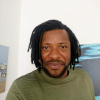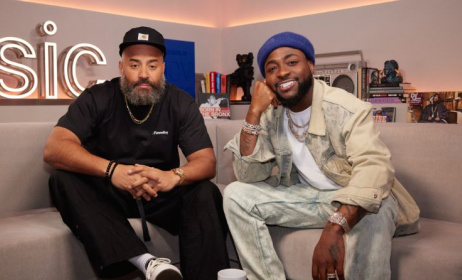G.rizo talks about Nigeria's EDM scene
G.rizo is a Nigerian electronic dance music (EDM) DJ and singer bringing the genre to a market that is just starting to pay attention to it. Electronic music is not new to Nigeria, but it's mostly underground with DJs playing for a Western audience, or at smaller events such as fashion shows and the like.
 G.rizo. Photo: Terna Iwar
G.rizo. Photo: Terna Iwar
This might be due to the stampeding effect Nigerian hip hop and Afrobeats have on most other genres, unlike South Africa where house, gqom and amapiano have become mammoth genres listened to by millions. Perhaps it's the genre's instrumental quality that has kept fans who like discernible vocals and messages away; perhaps electronica is sometimes a little too hard for most music lovers.
Music in Africa caught up with G.rizo, whose real name is Ihu Anyanwu, in Lagos to talk about the Nigerian EDM scene.
MUSIC IN AFRICA: Who is G.rizo?
G.RIZO: G.rizo is an electronic music artist: producer, singer and DJ. I have a background in communications and art direction. I started making music in New York City, lived in Vienna for 12 years and relocated back to Nigeria after 30 years – not for music but for an entrepreneurship opportunity. I never thought I'd play my type of music here. Also my background is in cultural organisation, but on a grassroots underground level. I never worked a corporate job. I also don't put DJ in front of my name, though I deejay.
What has it been like playing electronic music in Nigeria?
It's been interesting. It's different than what I'm used to. I've always been involved in underground alternative scenes – from an economic and social standpoint. People who are artists and creatives are the main base of my audience. In Nigeria, electronic music is a bit of an elite class scene only because a lot of the people who appreciate it are people who are familiar with it from abroad – as either expats or returnees. The sound and rhythm doesn't really appeal to everyday Nigerians in a natural way, unless it's extremely funk-based, because there isn’t really a self-reference. And the Nigerian artists and alternative creatives have their own sounds that they prefer like the palm-wine or alté scene with Odunsi and Co.
What has been outstanding for you since you began performing in Nigeria?
I can speak about Abuja. I've seen the scene develop really quickly. From not having reliable and regular options for going out to hear electronic music to having recurring events and enough of a crowd to invite an international act once in a while. I've seen the crowd become more mixed: more Nigerians enjoying the sounds and turning up. I've also met Nigerian DJs who have found love for the music and slowly started creating their own electronic music tracks. I see potential in the future for us to start releasing local music that actually has an authentic Nigerian accent or signature. That would be interesting.
How about the Lagos audience?
I feel like Abuja is more open than Lagos. The Naija pop sound is deeply tied to the identity of Lagos itself, as the cultural capital of Nigeria. And with Naija music reigning in Africa, that makes it very hyper protected and unchallenged. After all, it's actually responsible for muting if not totally annihilating our traditional, ethnic music. So Lagos is high stakes invested in Naija pop and it's identity is tied to it. They're not really checking for Western music, though funny enough house and techno have their roots from black Americans in Chicago and Detroit. Anyway, of course there are a few parties going on in Lagos as well. But I don't think there's a real openness to the sound. It sort of stays on the easy-listening, commercial surface of the genre's spectrum while I feel we can get dirtier in Abuja.
What made you go into electronic music?
I grew up in Nigeria as a child, until I was 13 years old. Those years we'd hear lots of soul and R&B. On occasion, Top of the Pops would pierce through with 'white' foreign music that kind of pushed our boundaries of musical appreciation, like Queen or Cyndi Lauper – sounds you'd never heard before. When I got to the States I was still in R&B but enjoyed pop as usual on the side. In high school I was introduced to dissonance or noise as an aesthetic via exposure to punk and alternative rock. I used to wonder, ‘Is this music? Why do they like it?' Sometimes the singers didn't have a traditionally beautiful voice, or they were screaming or there was no funky rhythm. This was a different palette altogether. And I love the sound of machines, especially when they are funky and controlled by a talented, soulful human.
What's the future of EDM in Nigeria?
I really believe the arts can liberate Nigeria. It's a pathway to self. On my end, I feel like there needs to be more exposure of the music to people via parties but also workshops on production, synthesizer hacking, field recordings and collaborations with local musicians to bring it home and make it ours. I also would like to introduce and showcase electronic music from a cerebral angle via art and technology projects and exhibitions. Electronic music is so rich and diverse, it's really a nerdy genre and it's a pity to relegate it to party music only. For me just these acts could lead to some kids of tomorrow innovating and pushing things forward on an international level. Of course, you know, 'Naija no dey carry last' [Nigeria never comes last].































Comments
Log in or register to post comments